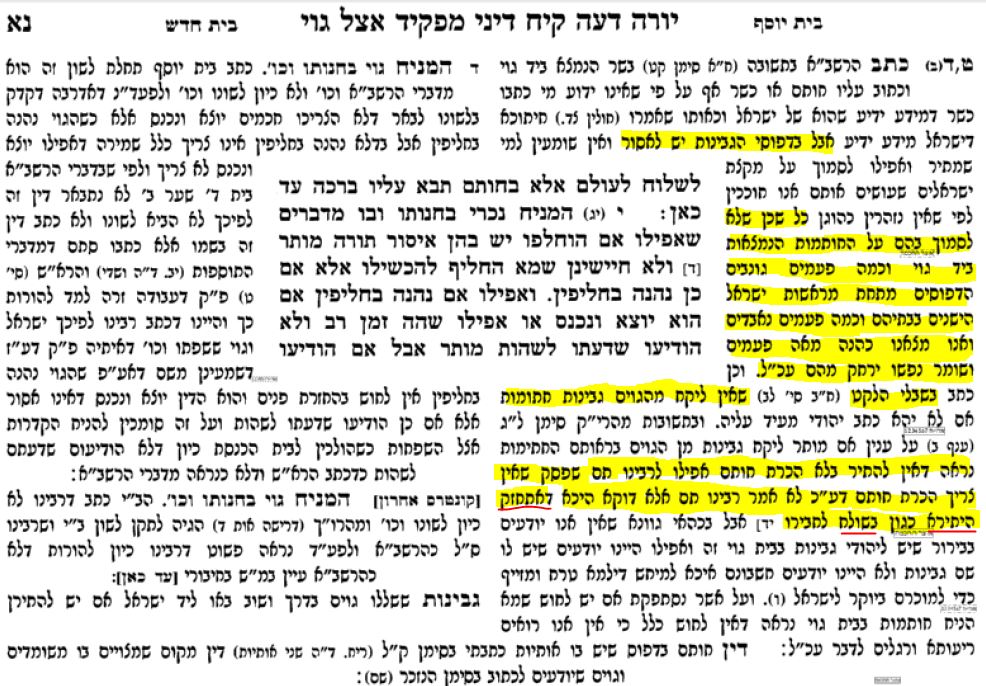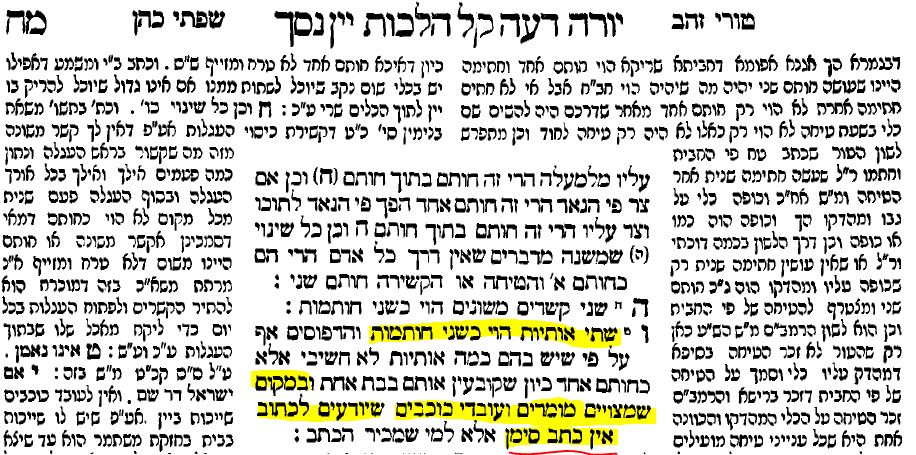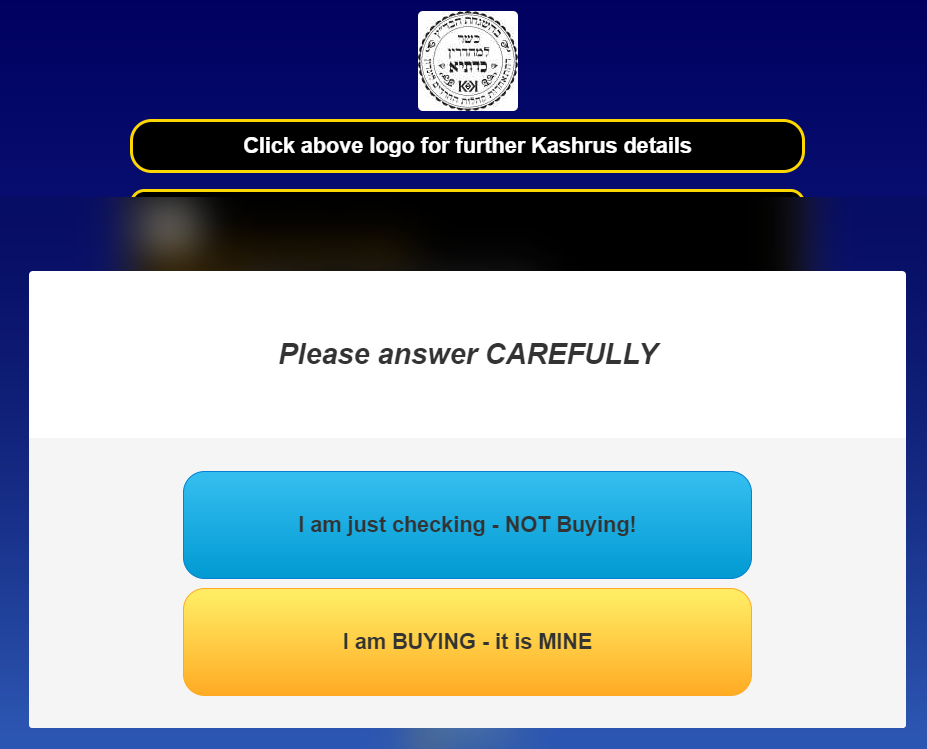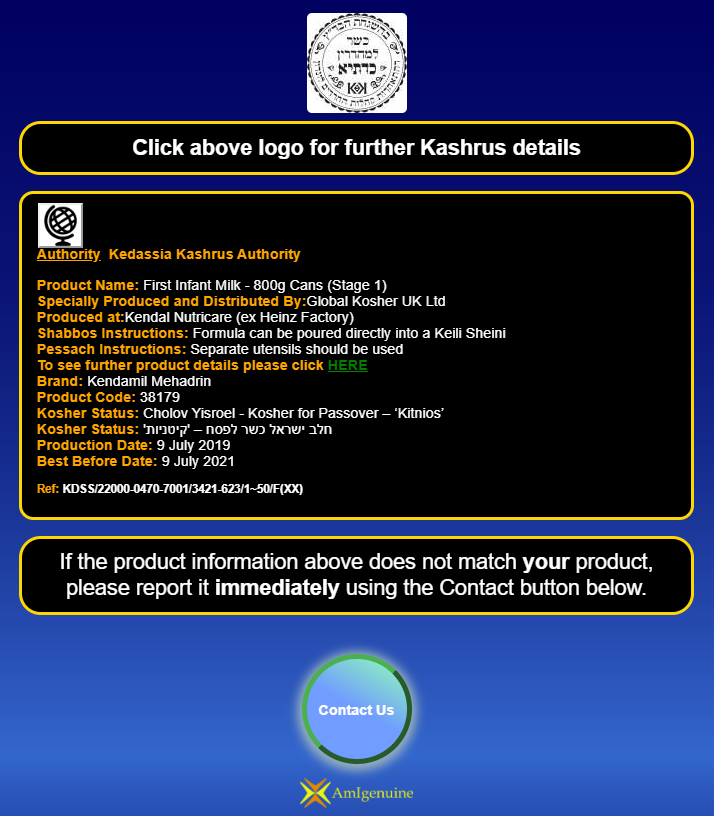The world market is flooded with counterfeit items. For the counterfeiter, anything that can make money for the counterfeiter is fair game. Food in general, and kosher food in particular is no exception.
It would be naive to assume that kosher food is somehow safe from such attacks. Kashrus Agencies the world over try their very best to prevent counterfeiting of their products, but the volume of forgeries that have been discovered indicates that this may in fact be only the tip of the iceberg.
This problem has existed for hundreds of years (see sidebar on the right) – since the days when products like wine and cheese were packaged in one place and delivered and consumed elsewhere. Then, a few Hebrew letters strategically placed on the packaging was considered halachically adequate proof that the item was of Jewish origin and had not been tampered with during its journey.
Today, kosher productions take place all over the world.
Today, anyone can print anything in any language and can replicate any symbol.
Today, how can a few Hebrew letters, symbols or logos prove the authenticity of a package, Restaurant or Hotel?
The risks are so high that we must have some irrefutable ‘seal’ to prove that an item is indeed genuine.
Is such a seal possible?
Does such a seal actually exist today?
Does any Kashrus Agency use such a seal?
The answer to all three questions is a definite YES.
On the next page we expand on the risks involved and the page after we give a brief tour of past and present methods of 'sealing' kosher products and investigate their effectiveness.
We will then present the TeMWIA Kosher‑Passport system (444-444-444.org) which provides absolute proof of authenticity and guarantees that the item is kosher.
As long as such a system did not exist, there may well have been no choice but to 'do our best' and accept the inherent risks.
But now that a proven and inexpensive system exists that can ensure the Kashrus of all products, surely it is incumbent upon us all to utilise it and ensure that all food we eat is indeed kosher.
When is a Seal Not a Seal?
 ---
---

Right image: Shulchan Aruch: Halacha mandates the use of seals when sending kashrus sensitive food via a nochri.
A Hebrew letter is deemed equivalent to a seal, but not when a nochri is able to write Hebrew letters.
Left image: Tur - Beis Yosef, quoting Rashbo: You may not buy cheese from a nochri even if it has a Jewish seal molded into the body of the cheese.
(The Jewish cheese makers had wooden ‘seals’, engraved with the word ‘Kosher’ or similar. These were placed into the mould before pouring in the liquid cheese, thus embossing a 'seal' in the cheese).
The reason given for forbidding the purchase of such cheeses is that these seals are easily lost or stolen and would end up in the hands of the nochri who could then make counterfeit cheeses.
To view further details and the relevance of these Halachos to today please click here.
This article is targeted at both Kashrus Authorities and the general public.
If they want to ensure that the products carrying their Hechsher will never be subject to counterfeiting, Kashrus Authorities should find the details on this site highly relevant and of pressing interest in today’s world of rampant forgeries.
The general public as well will begin to understand the serious risks that the kashrus industry faces from counterfeit foods. Maybe we are all much too complacent about buying international brands all over the world, relying on some marks on packaging that anyone and everyone can easily replicate.
By the end of this article, we hope all will understand that an inexpensive solution now does exist to eliminate all such risks.
Our system puts into the hands of every consumer the ability to check for themselves the authenticity of a product they have or are about to buy. All it needs is for Kashrus Authorities to adopt it.
We hope visitors to this site fill find it a compelling read. Those that already fully understand the issues and the failure of current solutions, can go direct to the TeMWIA Kosher‑Passport system page.
The example given below shows a general product rather than one related to Kashrus. A kosher product only differs in that the product description includes Kashrus information.
You are about to purchase an expensive item. You see there is a security label on the bottle. You can go and check it out in one of five ways.
The quickest is to use a Smartphone to scan the QR code on the security label. For those communities where Smartphones are not used there are four alternatives - manual entry of the codes at our secure web site at 444‑444‑444.net, via email, text message or phone call to an automated enquiry line.
A sample of such a QR code is shown on the sidebar on the right. Try reading it now with your own Smartphone. Alternatively just click on the QR image and it will simulate a scan of the code and open a new page or tab in your browser.
What happened? The sample QR code has embedded in it a link to the web site 444‑444‑444.net together with the two identification numbers for that bottle.
This pair of numbers is world-wide unique to that specific physical item.
No other item in the world will have that same pair of identifying codes.
The web page displays full details of the product, which allows the purchaser to verify that the product is indeed what it is expect to be.
You will first see Page 1 (see side-bar) where you confirm that you are purchasing the item.
Next will be shown Page 2 which contains all the details of your product.
Click on the images of the two pages on the side-bar on the right to see what the pages look like.
If Page 2 shows the exact details of your product then you know it is genuine.
If the details do not match or you are shown a warning message instead, then there is a problem and you must follow the instructions on the screen.
Lookup: Pages 1 & 2

